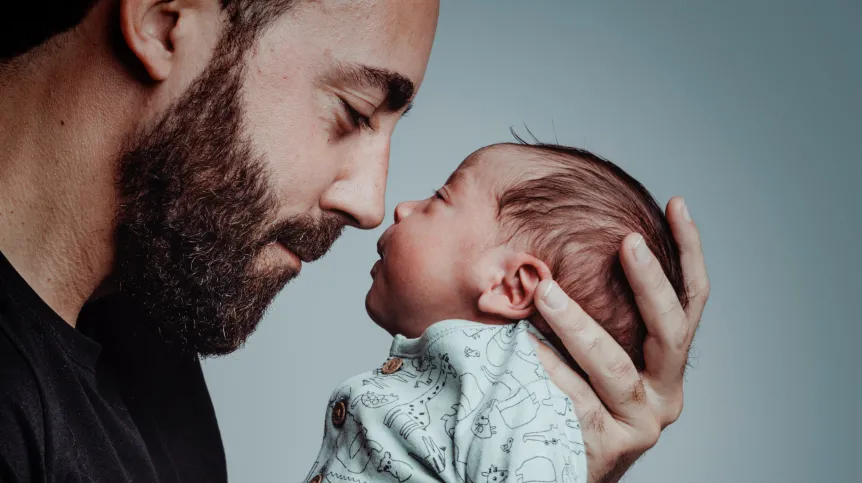
Experiences in the first year of life have a greater and longer-lasting impact on human development than similar experiences later in life, says psychologist Anna Brandt-Salmeri from the University of Silesia in Katowice. She is leading the Bobas project, which aims to introduce early mental health screening tools for infants into Poland’s healthcare system.
Brandt-Salmeri plans to adapt two Western European screening tools — the Copenhagen Infant Mental Health Screening (CIMHS) and the Alarm Distress Baby Scale (ADBB) — for use in Poland.
The CIMHS collects information on sleep, feeding, emotional expression, and relationships with caregivers, while the ADBB monitors signs of social withdrawal that may indicate early mental health problems.
“My primary goal is to highlight the importance of early psychological care and, in the long run, introduce both tools into the Polish healthcare system,” Brandt-Salmeri said.
Both methods are designed to detect early signs of mental health risk. Experts warn that combinations of symptoms such as sleep and feeding disorders and poor emotion regulation should be particularly concerning. The project will also assess parents’ mental well-being.
“We want to see how the parent’s psychophysical condition affects the infant’s functioning. When a parent is stressed or overloaded, sometimes psychoeducation is sufficient. However, in more complex cases, specialist intervention may be necessary,” the psychologist said.
Brandt-Salmeri stresses that infancy is a critical period for mental health. “The first year of life is a specific and complex time. This stage fosters extremely dynamic emotional and social development, but also makes the developing nervous system particularly sensitive to harmful factors, such as infections, metabolic defects, trauma,” she said.
Environmental stressors like inadequate care, sensory deprivation, or chronic parental stress can also hinder development.
“Infancy is a special period in life,” she added. “The foundations of a sense of self-identity are formed during this time, and very intensive processes occur in the brain that determine, among other things, the ability to experience, regulate, and communicate emotions, the development of empathy, the ability to build bonds, and the ability to learn.”
According to Brandt-Salmeri, a safe and responsive caregiving environment is essential. “An infant can only develop properly in a safe environment, in a relationship with a caregiver who is compassionate and sensitive to the child’s needs,” she said. Positive and negative experiences during this stage have “a greater and more lasting impact on human development than the same experiences in later stages of life.”
The researcher explained that infants’ behaviours, such as smiling and babbling, serve an adaptive purpose. “Parents’ priority is keeping the child alive, and the repertoire of emotional and social signals in infants serves an adaptive function, facilitating parental care,” she said.
Behavioural assessments in the Bobas project focus on infants’ ability to adapt, communicate, and express emotions. “The most alarming thing would be the so-called flat affect, a situation in which the infant does not display clear and distinct emotional or social responses, and as a result, does not signal their presence to caregivers or other adults,” Brandt-Salmeri said.
The Bobas project, titled “Infant Mental Health: Adaptation of Measurement Tools, Identification of Risk Groups, and Relationships with Parental Mental Health,” is funded by the Polish National Science Centre’s MINIATURA-8 grant. By April 2026, 200 caregiver–infant pairs (children aged 8–12 months) will be examined in several centres across Silesia, including Zabrze, Gliwice, Katowice, and Mysłowice.
Brandt-Salmeri said early psychological intervention offers both developmental and systemic benefits. “Early intervention means a high probability of effective help, as well as savings related to later treatment in the overburdened Polish child and adolescent psychiatric care system,” she noted.
More information about the Bobas project and participation details are available on the project website and Facebook page. (PAP)
Anna Bugajska
abu/ bar/ js/
tr. RL













